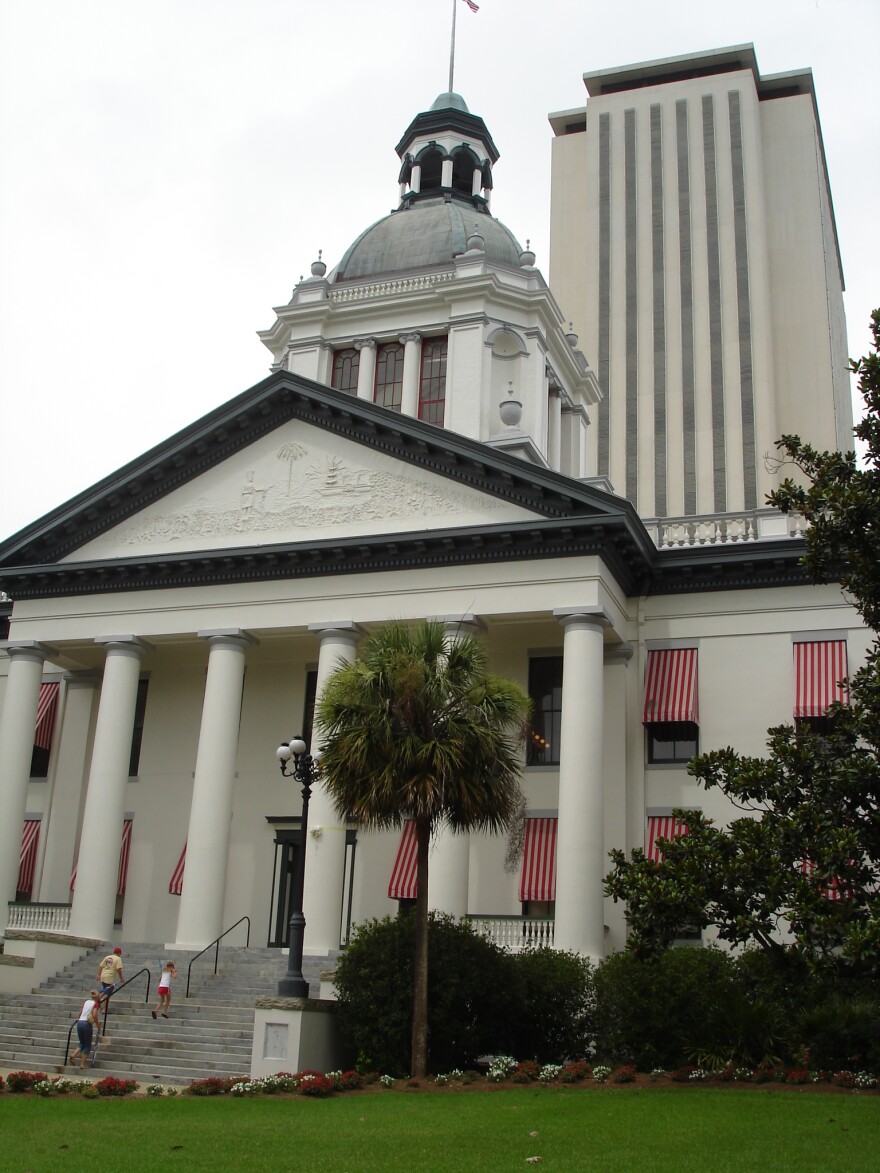A bill that would lead to the creation of a slavery memorial at the Florida Capitol began moving Tuesday in the state Senate.
The Senate Governmental Oversight and Accountability Committee unanimously approved the bill (SB 286), sponsored by Sen. Darryl Rouson, a St. Petersburg Democrat who said the memorial would recognize “the fundamental injustice, cruelty, brutality and inhumanity of slavery” in Florida and rest of the nation.
He said the memorial would “honor the nameless and forgotten men and women and children who have gone unrecognized for their undeniable and weighty contributions to this state and country.”
The vote was significant because the House voted 118-0 during the 2017 legislative session to authorize a slavery memorial, but the proposal never received a hearing in the Senate. The bill approved by the committee Tuesday is filed for the 2018 session, which starts Jan. 9.
Senate Governmental Oversight and Accountability Chairman Dennis Baxley, R-Ocala, opposed the previous slavery-memorial legislation, raising questions about its intent and design.
But Baxley said working with Rouson has helped resolve his concerns.
“For the record, I would say he and I have been on the same page,” Baxley said. “I never opposed the monument. We should all recognize those who came before us and paid a great price for what we have received.”
Baxley said he wanted to make sure the memorial focused “on the people who endured slavery rather than the institution itself.”
He also said he was concerned about giving “a free hand” to state agencies involved in the design of the memorial. “If we're going to do it, let's do it right,” he said.
In his discussions with Rouson, Baxley said he is more comfortable with the intent and the process for designing the slavery memorial and finding a place for it on the state Capitol grounds.
Under the bill, the Department of Management Services would be the lead agency in designing the memorial and designating a place for it. The agency would work in conjunction with the Florida Historical Commission and the Division of Historical Resources, which is part of the Florida Department of State.
The Department of Management Services, which oversees state facilities, would be required to deliver a report on the slavery memorial to Gov. Rick Scott and legislative leaders by Nov. 1, with the 2019 Legislature reviewing the proposal and providing funding for the project.
In supporting Rouson's bill, Baxley, who is the descendant of a Confederate soldier and who has defended the Confederate flag and memorials, said he voted for the legislation “with an expectation of permanency” for all historical memorials and monuments.
“And I hope that we can keep growing mutual respect for all of us honoring the permanency of those who came before us,” Baxley said.
A similar bill (HB 67), sponsored by Rep. Kionne McGhee, D-Miami, has cleared three House committees and is ready for a floor vote after the 2018 session starts.
Last month, Baxley voted against a separate proposal (SB 472 and SCR 184) that would replace a statue of Confederate Gen. Edmund Kirby Smith in the National Statuary Hall in Washington. Statues of Smith and John Gorrie, widely considered the father of air conditioning, have long represented Florida at the National Statuary Hall.
Baxley said he voted against that proposal, which would replace Smith with a statue honoring civil-rights leader and educator Mary McLeod Bethune, because he saw it as “a continuation of cultural purging and dishonoring those who came before us.”




